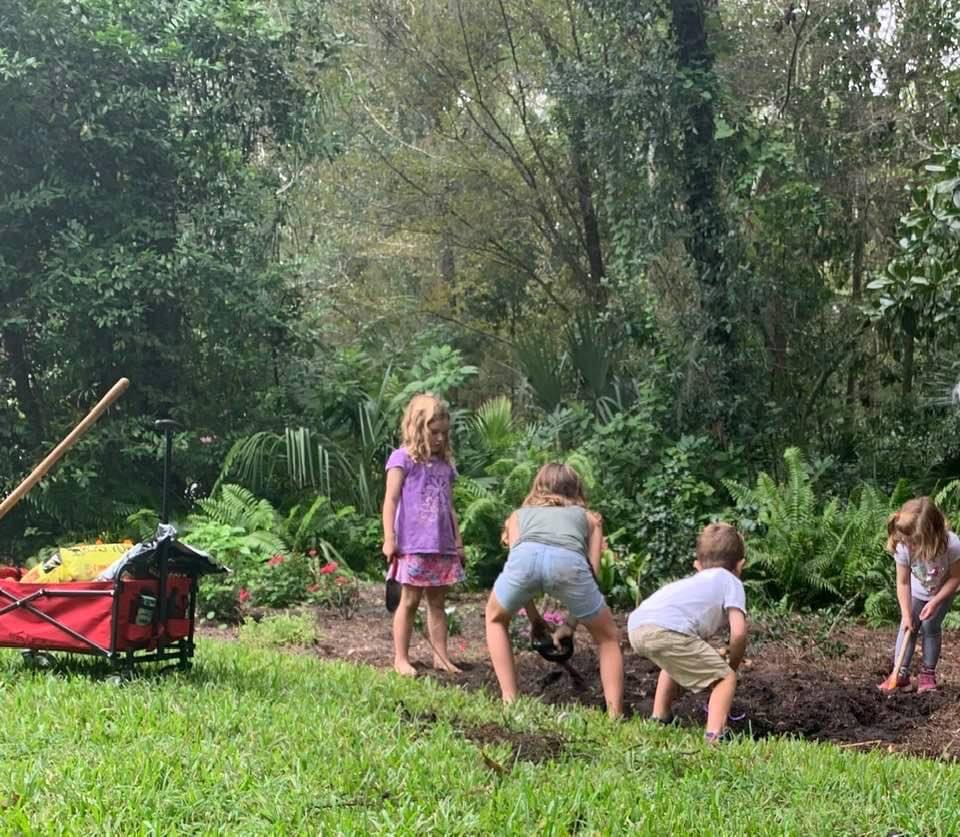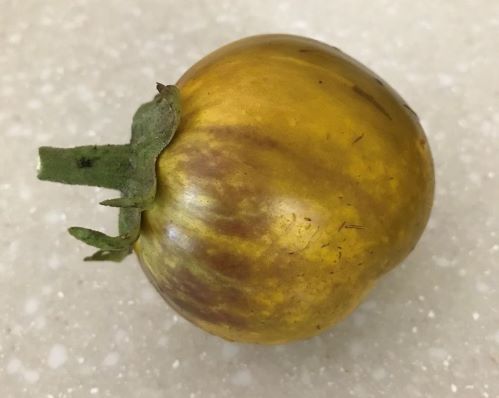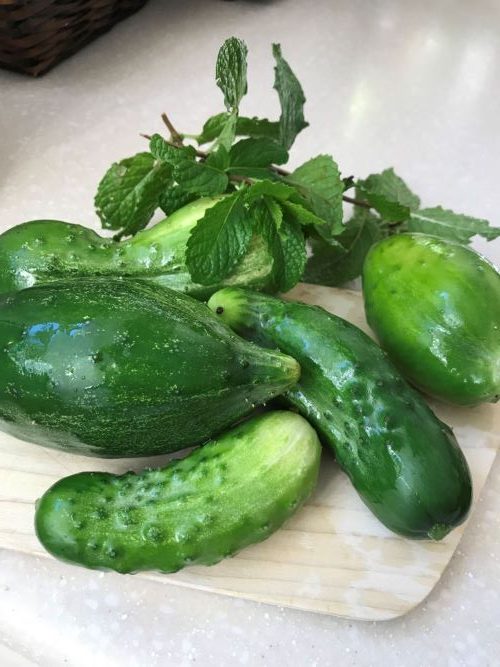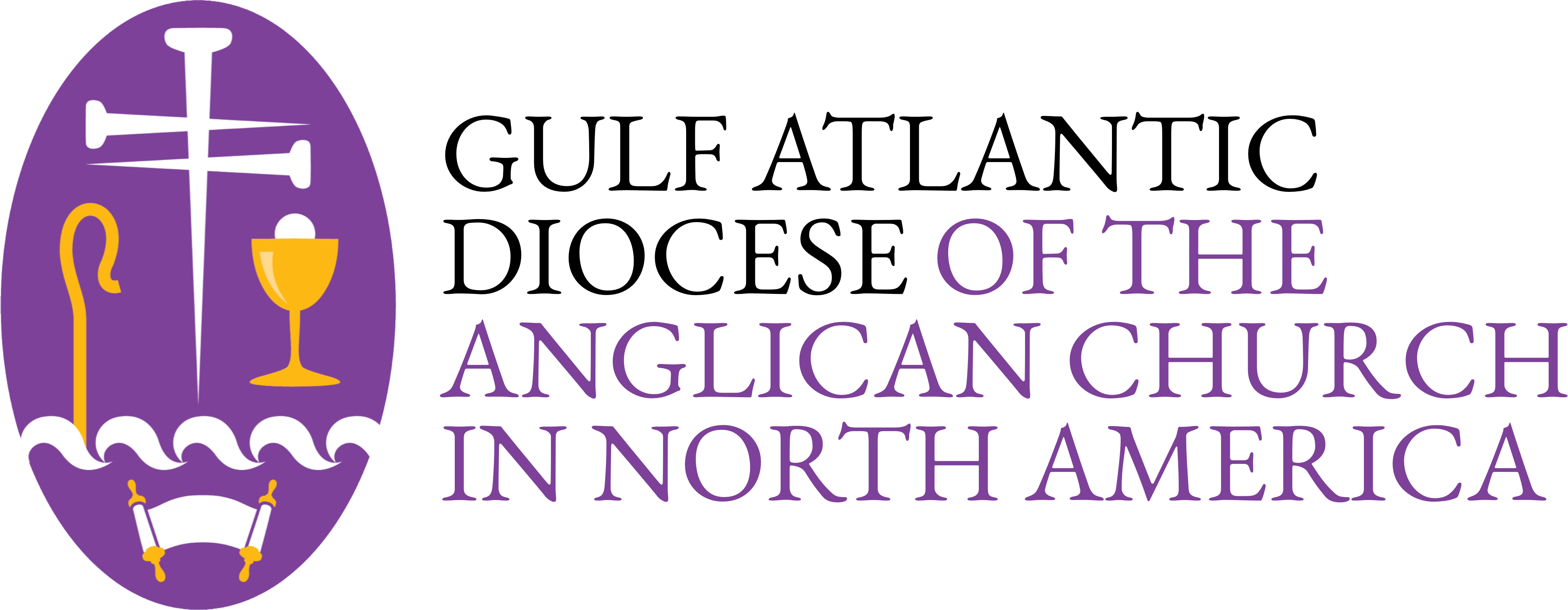

The ecstasy. The agony. Toiling in the Florida heat, ignited by hope and visions of glorious produce, I, along with my tribe of grandchildren gardeners, put in the labor. We clear the plot, dig it up and enrich the soil. Once we’ve planted, we weed, water, and watch it. After much waiting comes the mystery of harvest: big warm tomatoes, perfectly round and sweet, crunchy cucumbers, a handful of blueberries. It brings to mind Jesus’ parable in Mark 4 of the farmer who sows his field and it sprouts and grows but “he has no idea how it happens.” It is all some kind of miracle.
But moderating the delights of harvesting these beauties is the disappointment of finding misshapen cucumbers and eggplants that won’t ever purple. They refuse to ripen and then they rot. What went wrong? Last year we had oranges that refused to orange and never got sweet.
 While both Old and New Testaments are replete with farming analogies, there is a picture in the narrative biblical tapestry, beginning to end, of a plant gone wrong. This turns out to be one of the richest Threads in the biblical narrative tapestry.
While both Old and New Testaments are replete with farming analogies, there is a picture in the narrative biblical tapestry, beginning to end, of a plant gone wrong. This turns out to be one of the richest Threads in the biblical narrative tapestry.
Throughout the Hebrew scriptures, God describes Israel as God’s vine which he plants, loves, and tends. In the Exodus he uproots the precious vine and tends it through the wilderness, finally transplanting it in the Land he promised Abraham from the very beginning. He nourishes and protects it. “You brought a vine out of Egypt; you drove out the nations and planted it” (Psalm 80:8, ESV).
Tragically, no amount of tending, of love and exhortation and demonstrations of power, prevents Israel from returning to idolatry again and again. His people would not trust the Lord to help them produce fruit. Instead, they hedge their bets, take matters into their own hands, and imitate the practices of the cultures surrounding them. When God sends Israel into the exile of which he’d repeatedly warned, he describes them as a vine stripped of its branches (Nahum 2:2), because despite his attentive cultivating they only produced rotten fruit, fruit that literally stank. Israel utterly fails. Speaking of God’s tending his vine, Isaiah says this:
“He plowed the land, cleared its stones, and planted it with the best vines. In the middle he built a watchtower and carved a winepress in the nearby rocks. Then he waited for a harvest of sweet grapes, but the grapes that grew were bitter” (Isaiah 5:2, see also Jeremiah 2:21).
 Into the midst of this ruined picture, God makes a promise. Though his treasured vine, his people, produced only sour fruit and has been stripped and cut down, still a shoot will grow from Israel, from King David’s line, “a righteous branch”. That regrown “shoot” will bear on Israel’s behalf a fruitful bounty of wisdom, justice, truth, and obedience (Isaiah 11). The Messiah will fulfill God’s original intention for his people, and free them to do so.
Into the midst of this ruined picture, God makes a promise. Though his treasured vine, his people, produced only sour fruit and has been stripped and cut down, still a shoot will grow from Israel, from King David’s line, “a righteous branch”. That regrown “shoot” will bear on Israel’s behalf a fruitful bounty of wisdom, justice, truth, and obedience (Isaiah 11). The Messiah will fulfill God’s original intention for his people, and free them to do so.
Jesus puts on this image as one puts on a garment.
In John 15 he declares, “I am the true grapevine, and my Father is the gardener. He cuts off every branch of mine that doesn’t produce fruit, and he prunes the branches that do bear fruit so they will produce even more. . . . Remain in me, and I will remain in you. For a branch cannot produce fruit if it is severed from the vine, and you cannot be fruitful unless you remain in me. Yes, I am the vine; you are the branches. Those who remain in me, and I in them, will produce much fruit. For apart from me you can do nothing” (NLT).
Like Israel, all our fruit that isn’t sourced in Jesus, the righteous Branch, will eventually stink. All the works I do in my own strength are signs of my lack of faith. They unmask my feverish efforts to prove myself worthy of his love, and the effort exhausts and destroys me. God is deeply and seemingly irrationally fond of his children, and Jesus came to bear good fruit for me and in me.
 I toss my yellow eggplant and the twisted tiny cucumbers onto the refuse pile, and I pray that I won’t be like them. As I tear down the weeds whose tendrils are choking my fig tree and my flowers, I cry out to God the gardener to do this to me . . . to prune what chokes off the fruit he intends. I pray that I can cling to Jesus, God’s vine, and that his own mysterious fruit will be borne in my life.
I toss my yellow eggplant and the twisted tiny cucumbers onto the refuse pile, and I pray that I won’t be like them. As I tear down the weeds whose tendrils are choking my fig tree and my flowers, I cry out to God the gardener to do this to me . . . to prune what chokes off the fruit he intends. I pray that I can cling to Jesus, God’s vine, and that his own mysterious fruit will be borne in my life.
Through many of its books and authors, the Bible unfolds and develops this rich image. The singularity of God’s authorship shines through, and this is the very most simple telling. Thank God for these golden Threads in his Word!
Questions for reflection:
Like strangling weeds, what’s choking off my nourishment from Jesus? Are there habits that need to change?
Am I exhausting myself in some effort that’s not rooted in Jesus?
What does remaining in Jesus, the Vine, look like in the way I spend my days?
